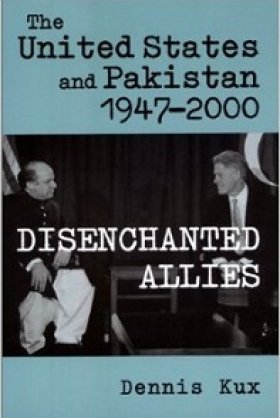The United States and Pakistan, 1947-2000: Disenchanted Allies

-
U.S.-Pakistan relations have been extraordinarily volatile, largely a function of the twists and turns of the Cold War. An intimate partnership prevailed in the Eisenhower, Nixon, and Reagan years, and friction during the Kennedy, Johnson, and Carter presidencies. Since the Cold War ended, the partnership has shriveled. The blunt talking to delivered by President Clinton to Pakistan’s military dictator during Clinton’s March 25, 2000, stopover in Pakistan highlighted U.S.-Pakistani differences. But the Clinton visit also underscored important U.S. interests in Pakistan.
The first comprehensive account of this roller coaster relationship, this book is a companion volume to Kux’s India and the United States: Estranged Democracies, 1941–1991, recently called “the definitive history of Pakistani-American relations” in the New York Times.
Dennis Kux is a retired State Department South Asia specialist who dealt with India and Pakistan for more than two decades, serving in Pakistan from 1957 to 1959 and 1969 to 1971. He was the U.S. ambassador to the Ivory Coast from 1986 to 1989. Kux was a Fellow of the Woodrow Wilson International Center for Scholars from 1996 to 1997, where he is currently a Senior Scholar.
Author
 Dennis KuxSenior Policy Scholar;
Dennis KuxSenior Policy Scholar;
Former Foreign Service Officer and US Ambassador to Ivory Coast



